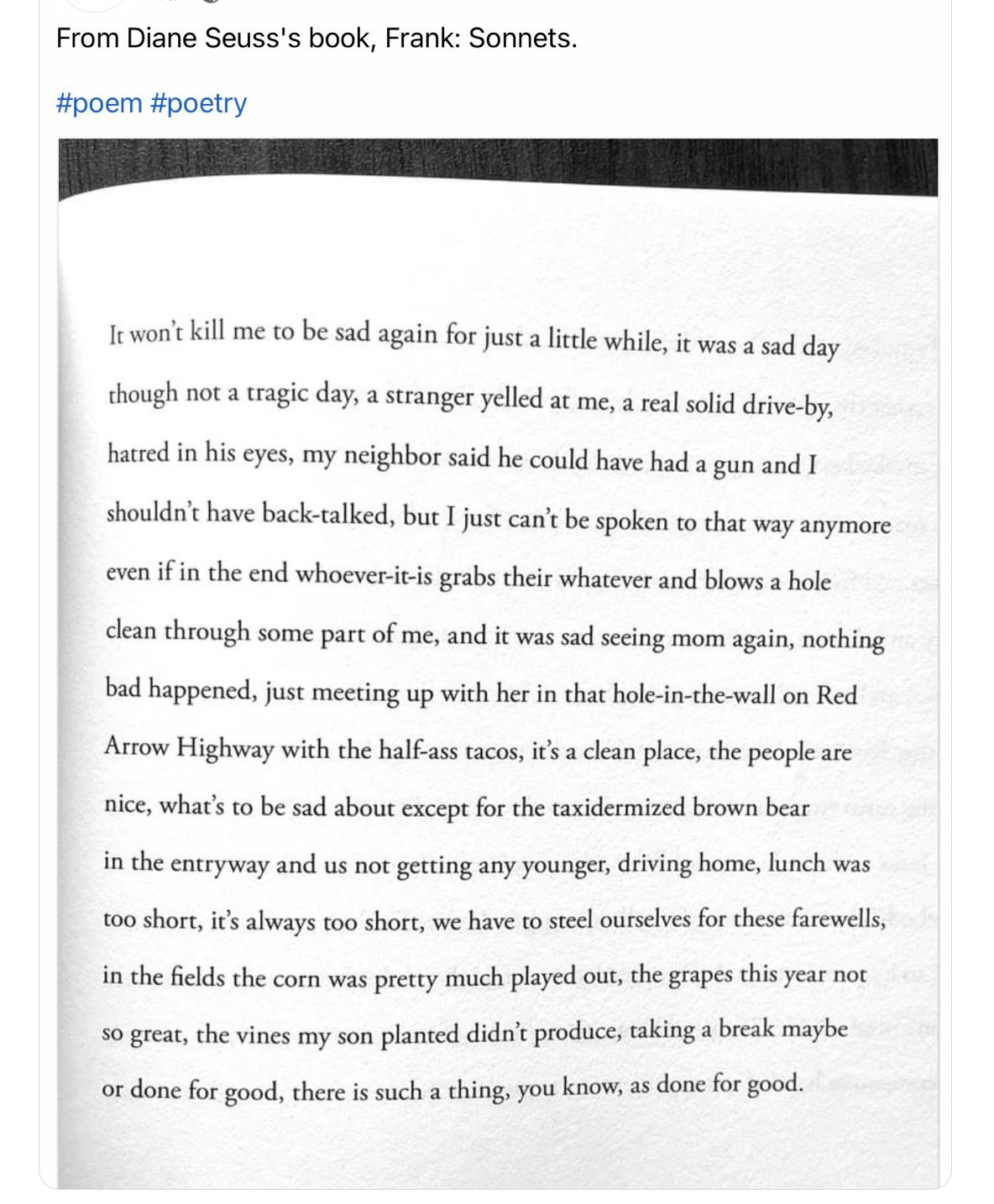This is a powerful poem about the genocide occurring in Gaza. It is hard not to write of the horrors but is difficult to do so in a way without speaking over the people who need to be heard. So while it is not my story to tell, it is important to share the stories of the people living through these horrors.
For the first prompt, reflect on how the terms “humanitarian” and “aid” are used in an imposed famine. What other terms have likewise been inverted to the point of absurdity or were created to obscure facts? Even syntax deliberately misleads, such as the ridiculous passive voice used bombing or in the US for police officers attacking and murdering civilians and ICE kidnapping and trafficking residents. Newspaper headlines should provide solid examples of propaganda and Orwell’s “newspeak” for a poem or story especially as the U.S. slides further into fascism.
For the second prompt, choose a newspaper article about a targeted group in the U.S. or one abroad for an erasure poem. Cross out any phrases or sentences that originate from the perspective of a more powerful group. What words are left? Or, conversely, cross out statements, words, or even letters—remembering to not add anything—to show the missing viewpoint if you are part of that targeted group or can do so carefully if you are not. It is easy to cause harm even with the best of intentions.
The next prompt is write a story, poem, or essay about a specific event in your life or from your family history that has been either suppressed or distorted. A variation on this prompt is to structure the narrative by filling in the gaps or replacing the euphemisms in an obituary.
Good luck.

























